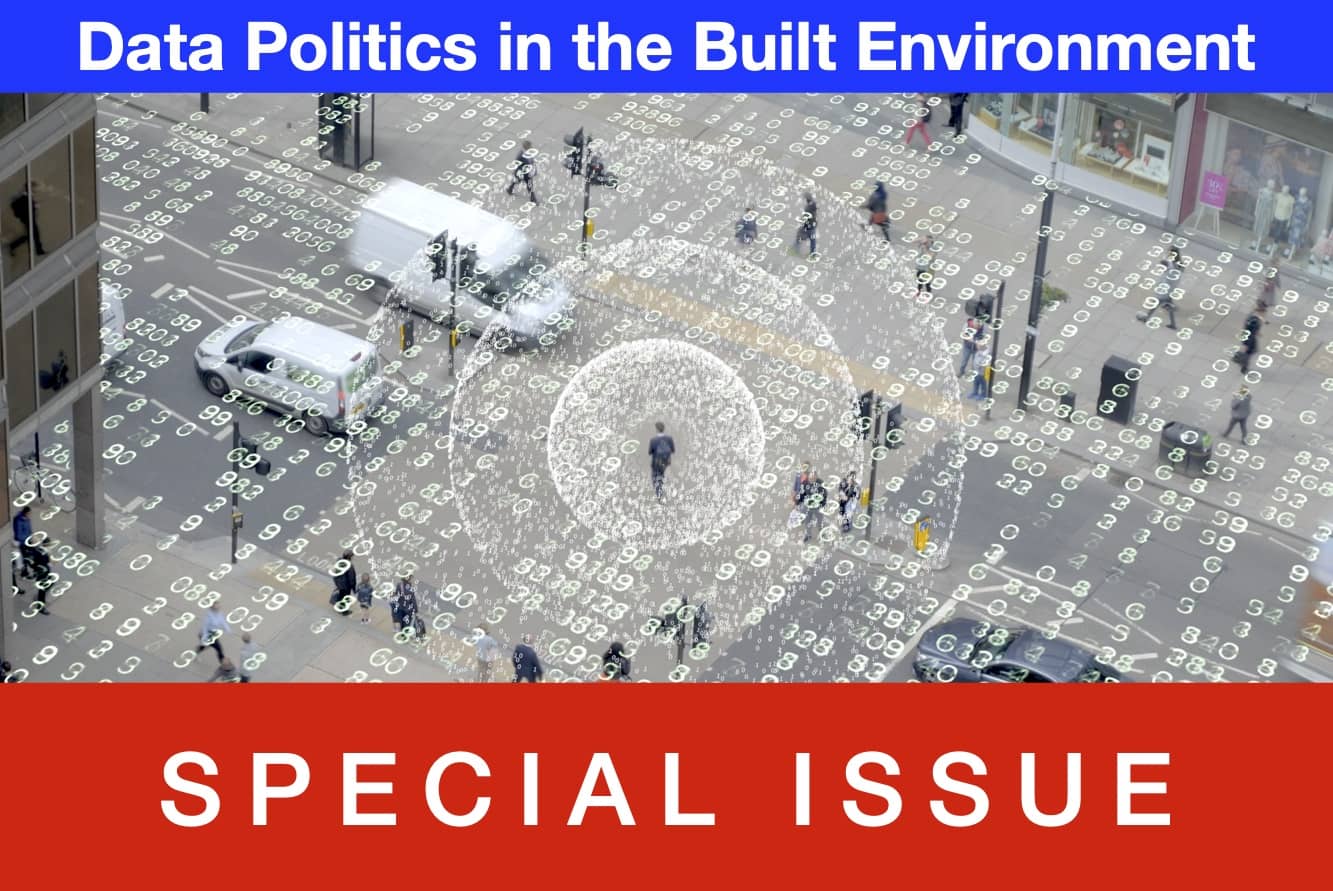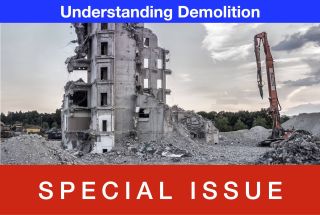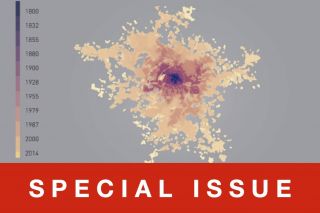
www.buildingsandcities.org/journal-content/special-issues/data-politics-si.html
Data Politics in the Built Environment

This special issue advances understandings of the practices, politics and power implications of data-driven buildings and cities
Buildings and cities are increasingly being reconfigured and reimagined by flows of data e.g. in smart homes and cities, digitally networked infrastructure services, shared mobility programmes and autonomous vehicles, surveillance and security systems, and urban control centres. The benefits of a datafied built environment are uneven and result in detrimental impacts to some individuals and groups at the expense of others.
Guest editors: Andrew Karvonen and Tom Hargreaves
Datafication processes are far from neutral. In many cases, the datafication of the built environment is invisible to users which has negative democratic implications. The asymmetrical access to data produces conditions that are beneficial to some but not all. Decisions about what data gets collected and what is ignored are unavoidably political processes that privilege some while neglecting others. This special issue raise key questions about how data-driven buildings and cities can be designed to be inclusive and democratic.
A key theme emerging from the special issue involves processes of societal exclusion that are commonplace in datafication. Mello Rose and Chang argue that datafication processes tend to ignore important sources of 'subjective socio-cultural data' while Sharma et al. highlight the under-representation of particular social groups and the perpetuation of existing structures of inequality. White and Larsson demonstrate how digital platforms produce social relations that are de-individualized and de-personalised to realise globalised and consumerist modes of life, while Sareen et al. show how digitalisation favours privatised and individualised structures rather than collective forms of management and ownership.
A second theme in the special issue is the centrality of local geographies and histories to datafication processes. All of the contributions emphasise the importance of qualitative methods and datasets to characterise local histories and geographies while providing a strong corrective to the universalising quantitative abstractions of most datafication processes.
This special issue highlights the importance of including civil society in the development of new visions and alternatives that can dismantle existing unjust power structures. The contingent character of datafication processes is not inevitable but is the result of particular actions that could have turned out differently. Commoning can be a means to normalise and institutionalise more progressive and inclusive forms of collective consumption. Data-driven processes that are founded in social justice could realise fundamental systemic changes. A more 'radical ethics' of data politics could serve to renegotiate and re-evaluate interconnected urban crises.
Table of contents
Data politics in the built environment (Editorial)
A. Karvonen & T. Hargreaves
Social justice implications of smart urban technologies: an intersectional approach
N. Sharma, T. Hargreaves & H. Pallett
Urban data: harnessing subjective sociocultural data from local newspapers
F. Mello Rose & J. Chang
Social implications of energy infrastructure digitalisation and decarbonisation
S. Sareen, A. Smith, S. Gantioler, J. Balest, M.C. Brisbois,
S. Tomasi, B. Sovacool, G. A. Torres
Contreras, N. Dellavalle & H. Haarstad
Disruptive data: historicising the platformisation of Dublin's taxi industry
J. White & S. Larsson
Feedback on the special issue
Phronesis and epistemic justice in data-driven built environments
Miguel Valdez
The data politics of tech corporations
Dillon Mahmoudi & Alan Wiig
Disruptive technologies and the regulator's dilemma
Andrea Pollio
Populist dissent and digital urbanism
Robert Cowley
Latest Peer-Reviewed Journal Content
Urban verticalisation: typologies of high-rise development in Santiago
D Moreno-Alba, C Marmolejo-Duarte, M Vicuña del Río & C Aguirre-Núñez
A public theatre as a living lab to create resilience
A Apostu & M Drăghici
Reconstruction in post-war Rome: transnational flows and national identity
J Jiang
Reframing disaster recovery through spatial justice: an integrated framework
M A Gasseloğlu & J E Gonçalves
Tracking energy signatures of British homes from 2020 to 2025
C Hanmer, J Few, F Hollick, S Elam & T Oreszczyn
Spatial (in)justice shaping the home as a space of work
D Milián Bernal, J Laitinen, H Shevchenko, O Ivanova, S Pelsmakers & E Nisonen
Working at home: tactics to reappropriate the home
D Milián Bernal, S Pelsmakers, E Nisonen & J Vanhatalo
Living labs and building testing labs: enabling climate change adaptation
J Hugo & M Farhadian
Energy sufficiency, space temperature and public policy
J Morley
Living labs: a systematic review of success parameters and outcomes
J M Müller
Towards a universal framework for heat pump monitoring at scale
J Crawley, L Domoney, A O’Donovan, J Wingfield, C Dinu, O Kinnane, P O’Sullivan
Living knowledge labs: creating community and inclusive nature-based solutions
J L Fernández-Pacheco Sáez, I Rasskin-Gutman, N Martín-Bermúdez, A Pérez-Del-Campo
A living lab approach to co-designing climate adaptation strategies
M K Barati & S Bankaru-Swamy
Mediation roles and ecologies within resilience-focused urban living labs
N Antaki, D Petrescu, M Schalk, E Brandao, D Calciu & V Marin
Negotiating expertise in Nepal’s post-earthquake disaster reconstruction
K Rankin, M Suji, B Pandey, J Baniya, D V Hirslund, B Limbu, N Rawal & S Shneiderman
Designing for pro-environmental behaviour change: the aspiration–reality gap
J Simpson & J Uttley
Lifetimes of demolished buildings in US and European cities
J Berglund-Brown, I Dobie, J Hewitt, C De Wolf & J Ochsendorf
Expanding the framework of urban living labs using grassroots methods
T Ahmed, I Delsante & L Migliavacca
Youth engagement in urban living labs: tools, methods and pedagogies
N Charalambous, C Panayi, C Mady, T Augustinčić & D Berc
Co-creating urban transformation: a stakeholder analysis for Germany’s heat transition
P Heger, C Bieber, M Hendawy & A Shooshtari
Placemaking living lab: creating resilient social and spatial infrastructures
M Dodd, N Madabhushi & R Lees
Church pipe organs: historical tuning records as indoor environmental evidence
B Bingley, A Knight & Y Xing
A framework for 1.5°C-aligned GHG budgets in architecture
G Betti, I Spaar, D Bachmann, A Jerosch-Herold, E Kühner, R Yang, K Avhad & S Sinning
Net zero retrofit of the building stock [editorial]
D Godoy-Shimizu & P Steadman
Co-learning in living labs: nurturing civic agency and resilience
A Belfield
Join Our Community

The most important part of any journal is our people – readers, authors, reviewers, editorial board members and editors. You are cordially invited to join our community by joining our mailing list. We send out occasional emails about the journal – calls for papers, special issues, events and more.
We will not share your email with third parties. Read more



Latest Commentaries
COP30 Report
Matti Kuittinen (Aalto University) reflects on his experience of attending the 2025 UN Conference of the Parties in Belém, Brazil. The roadmaps and commitments failed to deliver the objectives of the 2025 Paris Agreement. However, 2 countries - Japan and Senegal - announced they are creating roadmaps to decarbonise their buildings. An international group of government ministers put housing on the agenda - specifying the need for reduced carbon and energy use along with affordability, quality and climate resilience.
Building-Related Research: New Context, New Challenges
Raymond J. Cole (University of British Columbia) reflects on the key challenges raised in the 34 commissioned essays for Buildings & Cities 5th anniversary. Not only are key research issues identified, but the consequences of changing contexts for conducting research and tailoring its influence on society are highlighted as key areas of action.